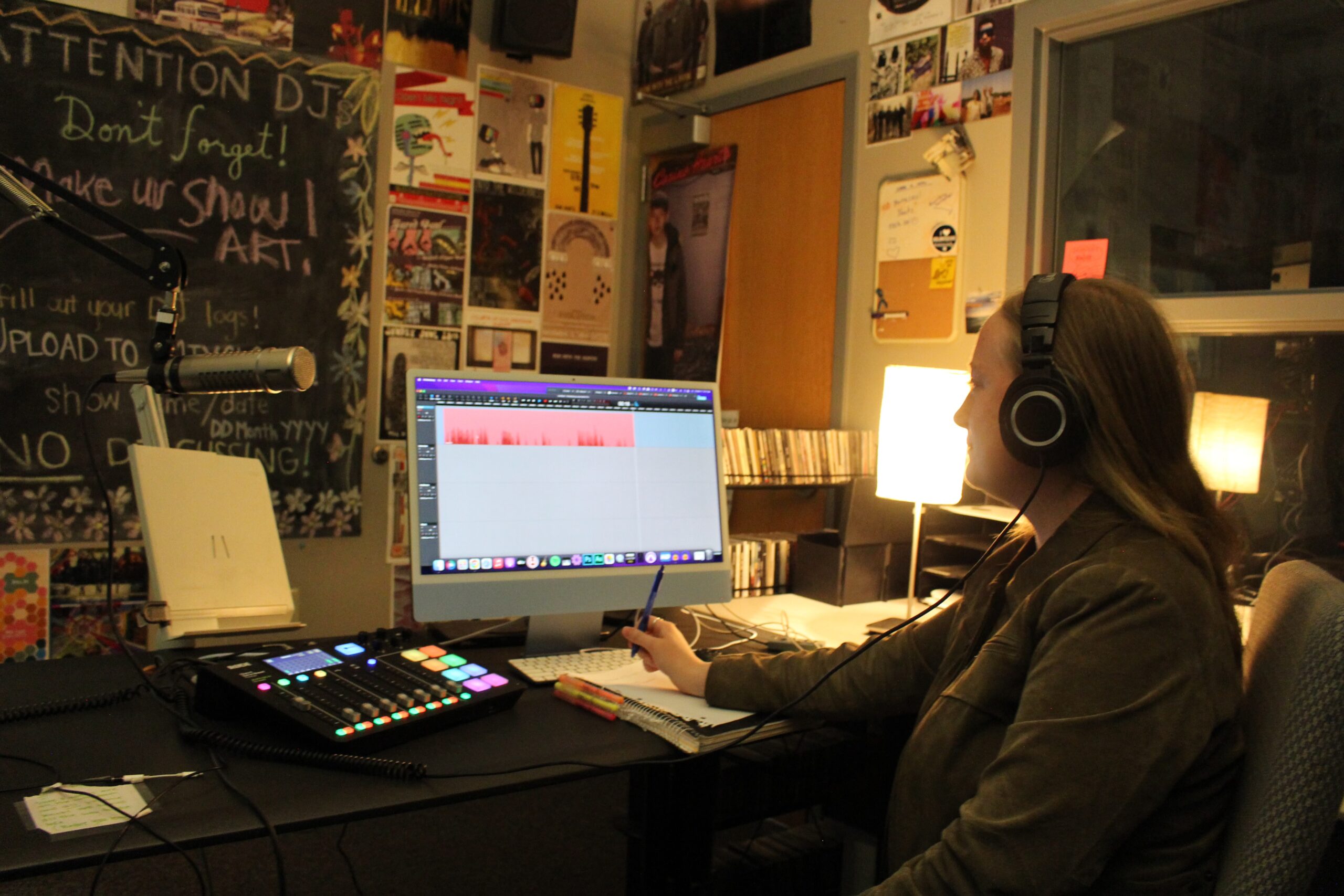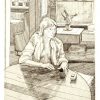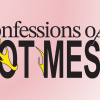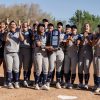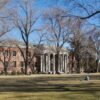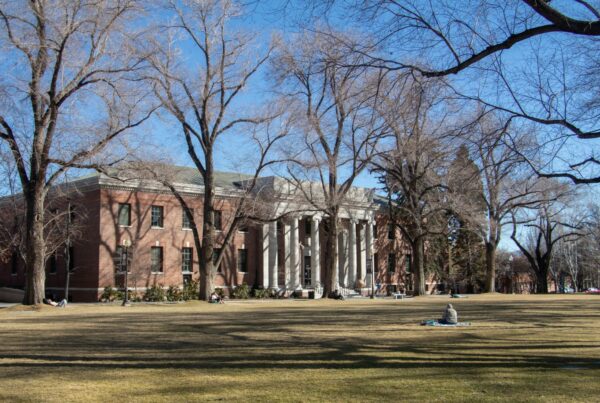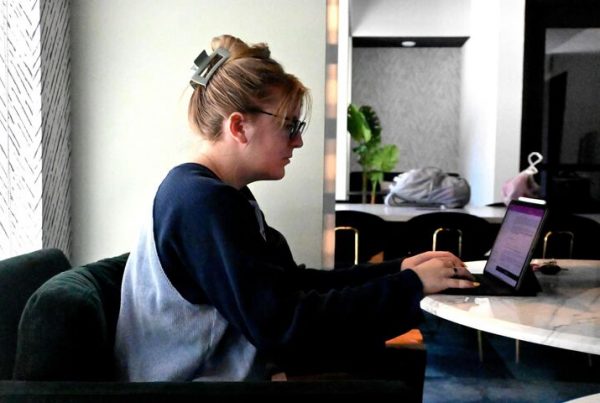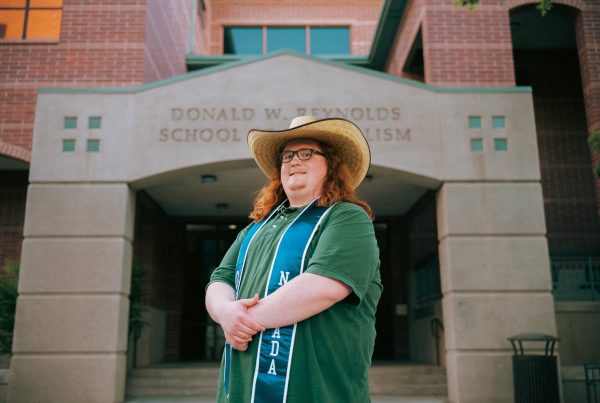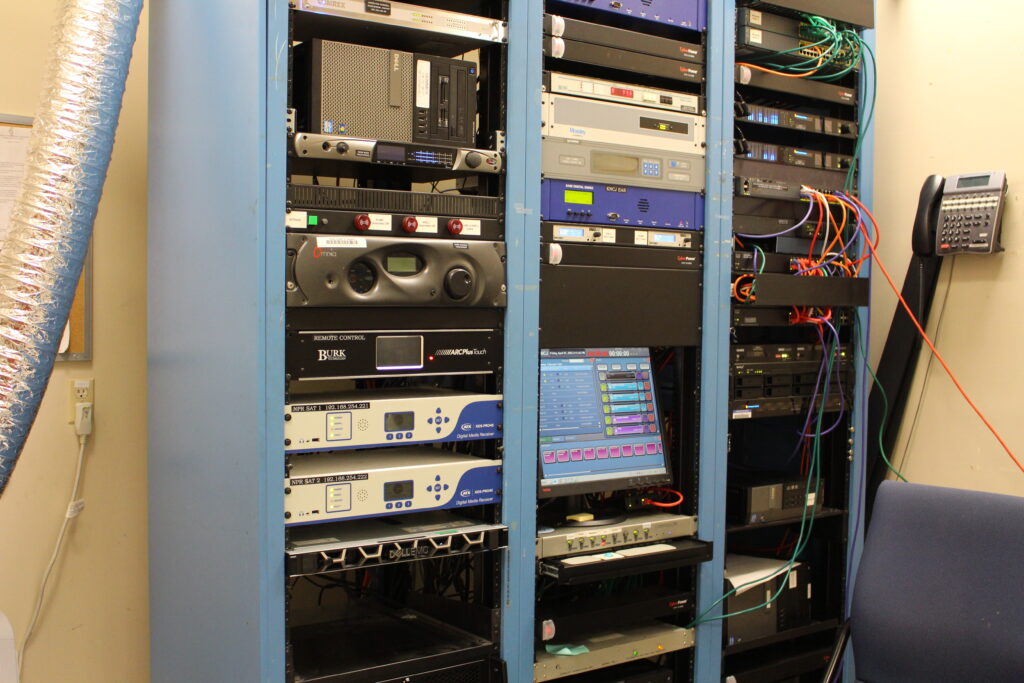
Behind the scenes of KUNR, UNR’s NPR affiliate radio station.
It’s an ordinary morning, you grab your keys, your coffee and rush out the door. You twist the key and start the car and the stereo pours out the National Public Radio, or NPR, newscast. The sound of the newscaster droning on is unfamiliar. You quickly change the settings to Spotify and begin pumping out your pre-made playlist, because who listens to the radio anymore?
However, imagine a world without the radio at your fingertips. This might become a reality after NPR laid off 10 percent of its staff, canceled four podcasts and halted their internship program
But what does this mean for public radio? Members of the Nevada broadcasting and radio landscape weigh in on the issue.
Hidden in the bottom floor of Cain Hall at the university lives KUNR, the Nevada branch of NPR. Brian Duggan, the general manager of KUNR, the northern Nevada public radio, and KNCJ, the classical and jazz radio station, thinks it’s untrue.
Duggan speaks about how KUNR has actually seen an increase of listeners since the pandemic hit in 2020, serving around 77 thousand people a week based on Nielsen ratings.
“Being a public radio station makes us different than commercial radio and the biggest difference is our funding models,” said Duggan. “So, unlike commercial radio, which is primarily just through advertisements, the lion share of our funding comes from members, so about 60 percent of our budget comes from donations from people who listen to us.”
He doesn’t believe that radio is dying, as former executive editor for the Reno Gazette Journal, he believes that radio is thriving.
“I do know that the staffing has gotten smaller at some of those stations [commercial broadcast]. They become more reliant on automation just as we are too,” said Duggan. “We use automation too. Meaning we have some part-time hosts who will come in on a Friday and they will record: ‘Hey, you’re listening to KUNR, it’s 9:00 a.m.,’ That person actually recorded that message, like, days before that, [we] just put it into our system so it plays at the right time.”
Overall, he believes that when things get rough, people will always turn to public radio.
The layoffs do not only affect avid listeners, but also students considering they suspended their internship programs, as well. At the University of Nevada, Reno, this issue hits home for Sophie Duvall, Wolf Pack Radio host.
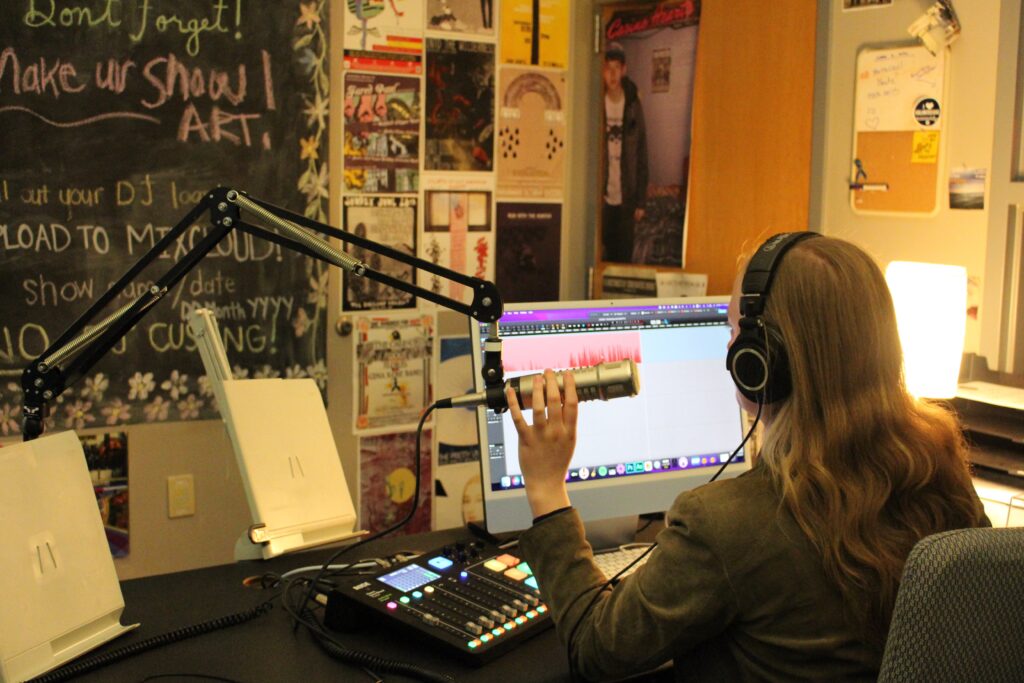
Sophie Duvall, former Wolf Pack Radio DJ, sits at a desk to record her show.
Contrary to the evidence from NPR, Duvall has the opposite belief to many society members.
“No, I don’t think radio is dying, in fact I find it very much alive,” said Duvall.
Duvall, a double major in biology and music, created and hosts the show Vignettes: a show which focuses on the underground classical music written and created by women. The importance of recognizing women in classical music is something that she holds close to her.
Duvall hosts the show every Monday at 6 p.m. and every Saturday at noon. Listening to and creating a radio show is something very important to Duvall. In high school, before entering the university, she discovered KWNK, Reno’s community radio station forged from past Wolf Pack Radio workers.
“I am a big fan of community radio and I’m always paying attention to when the [DJ] applications are released,” said Duvall. “It’s been a dream of mine so I was able to follow it real closely and I connected with them mostly at the club fair and then I gave them my information.”
Along with Duvall, they both never see radio dying as distinctly as you would see written newspapers. So, the next time your car decides to tune into the local radio station, let it play. You’ll never know what you might end up hearing.
Emily Hess can be reached via email at jaedynyoung@sagebrush.unr.edu or via Twitter @NevadaSagebrush.

